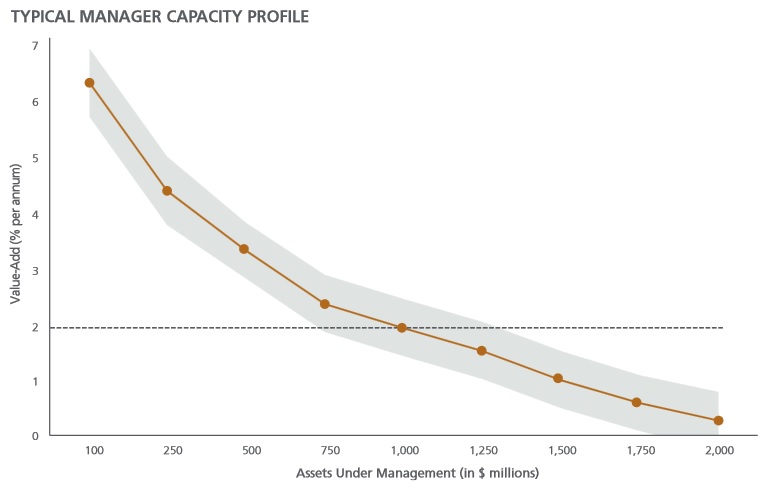NZ Super: How to Buy Illiquid Equities
A fund manager’s capacity is one of the key drivers of their ability to generate alpha—and asset owners should take control of it, according to a new paper by the New Zealand Superannuation Fund (NZ Super).
The white paper, “Assessing Manager Capacity—The Case of New Zealand Equities”, written by Head of Asset Allocation David Iverson and Investment Manager Paul Gregory, laid out the NZ$25.9 billion ($18.8 billion) fund’s approach to smaller, illiquid markets.
The paper advocated asset owners taking control of capacity discussions through simulated backtests. NZ Super’s internal team runs tests based on managers’ historical monthly positioning, simulating how a fund’s trading costs and returns would have been affected as the fund’s size changed.
“As asset under management (AUM) increases, the size of trades required to achieve the desired active positions for the portfolio also increases,” Iverson and Gregory wrote. “Some of these simulated trades, especially those involving smaller or less liquid stocks, will run into capacity issues at given traded volumes during that time period.”
In addition, a larger AUM may mean the manager is unable to reach the desired allocation towards a particular stock. This can restrict that manager’s ability to add value above the benchmark after trading costs.
The change in performance illustrated by NZ Super’s simulations “allows us to estimate where the manager’s capacity lies”, the authors said. “The sensitivity of that estimate to the assumed transaction limits can help us establish a range of uncertainty around our capacity estimate,” they added, including a hypothetical illustration of the effects of a higher AUM.
 How capacity affects alpha generation. Source: NZ SuperNZ Super’s local equity positions
account for roughly 2% of the total New Zealand stock market, and 5% of the
fund’s assets under management.
How capacity affects alpha generation. Source: NZ SuperNZ Super’s local equity positions
account for roughly 2% of the total New Zealand stock market, and 5% of the
fund’s assets under management.
“Compared to other developed countries’ equity markets, the New Zealand share market is very small and quite illiquid,” the authors wrote. “Capacity is therefore particularly important for active managers in this market, despite recent strong returns increasing the market’s size.”
However, Iverson and Gregory emphasized that the approach taken by NZ Super “is not intended to produce a hard conclusion about what capacity is for a particular active New Zealand equities strategy”.
“Rather, it allows us to engage in a robust conversation about capacity with the manager,” they concluded.
Related: An Active Manager’s Guide to Working with NZ Super; Too Big to (Not) Fail; Should One Size Fit All Managers?
